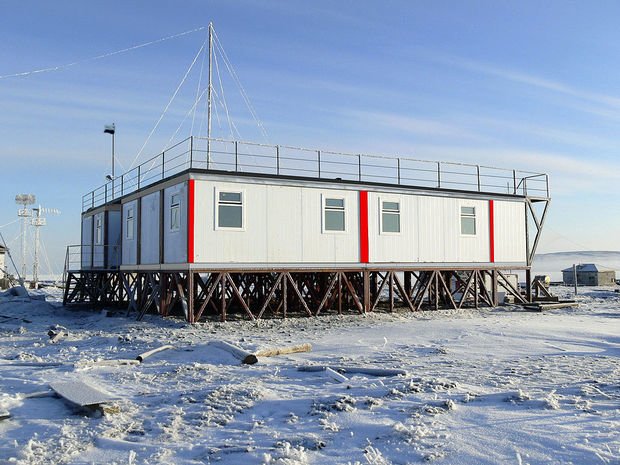Wind energy to replace diesel in remote Arctic town
The project is aimed at stabilising the settlement’s power grid
In the Russian Far East, a lot of small settlements are heavily dependent on diesel-fuelled power generators, as they are not connected to a large-scale power grid. Renewable energy facilities like wind power plants can become a cheaper and more reliable replacement for diesel energy. Last month, such a wind power farm was inaugurated in one of Russia's northernmost settlements.
A new wind farm in a remote Russian village north of the Arctic Circle will help 4,600 of its residents reduce reliance on expensive diesel generators and fuel deliveries, says The Moscow Times. The project called 'Polar Microgrid System' was launched by RusHydro electric company in collaboration with Japanese researchers and the administration of the Far Eastern Republic of Sakha last year. The system was designed to integrate existing generating facilities with wind turbine generators and storage batteries.
At the beginning of November, a 900-kilowatt wind power plant was inaugurated in the town of Tiksi. According to RusHydro, the wind farm will help reduce the settlement's reliance on diesel by 500 tonnes a year. Governor of Sakha Aisen Nikolayev said that the project ''would help improve living conditions of Tiksi residents, who live in some of the most extreme climate conditions on our planet''.
The plant is equipped with three turbines built by Japan's Komaihaltec renewable energy company, which are able to withstand temperatures of up to minus 50 degrees Celsius and high winds. ''We expect the equipment will withstand harsh climate conditions and prove its effectiveness,'' said RusHydro's Director General Nikolay Shulginov.

Next year, RusHydro plans to start building a 3-megawatt diesel plant to integrate it with the wind farm and reach a total capacity of 3,9 megawatts. Besides the new facility, the company operates four wind farms in remote Siberian and Far East locations with a combined capacity of almost 2,500 kilowatts.
The Russian government continues to incentivise the development of renewable energy projects through a renewable energy capacity auction scheme. The latest auction, which took place in June 2018, has resulted in 39 renewable power projects. Most of the design capacity was awarded to wind projects followed by solar projects and small hydropower projects.